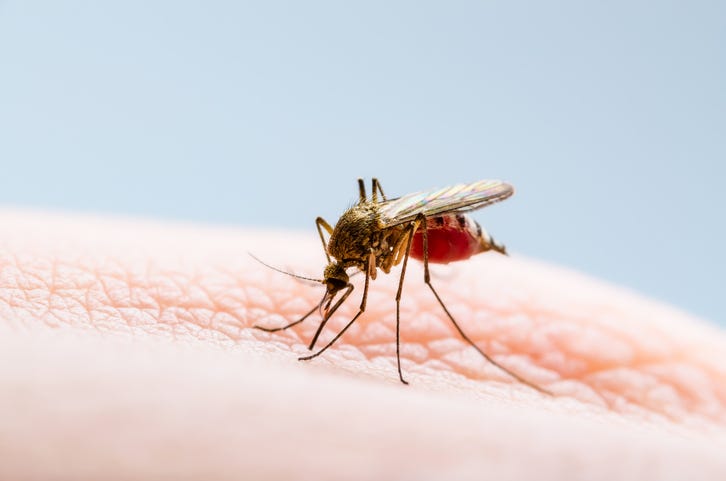
(WWJ) Michigan's first human cased of West Nile virus in 2021 have been confirmed in residents of Macomb and Oakland counties.
Making the announcement on Friday, officials with the Michigan Department of Health and Human Services urged the public, in these counties and across the state, to take precautions.
The best ways to avoid WNV — as well as Eastern Equine Encephalitis (EEE), another potentially deadly mosquito-borne illness — are simple: Take steps to reduce the number of mosquitoes around your home, and avoid being bitten by mosquitoes.
“It only takes one bite from an infected mosquito to cause a severe illness, so take extra care during peak mosquito-biting hours, which are dusk and dawn,” said Dr. Joneigh Khaldun, MDHHS chief medical executive and chief deputy director for health. “As we head into the holiday weekend and beyond, we urge Michiganders to take precautions such as using insect repellant and wearing long-sleeve shirts and long pants when outdoors during those time periods.”
In the past week, mosquitoes collected in the City of Detroit and Bay, Kent, Macomb, Midland, Oakland and Wayne counties have tested positive for WNV and Jamestown Canyon virus (JCV). Additionally, EEE virus was identified in a sick deer from Livingston County. The risk for mosquito-borne illness rises throughout the state over the course of the mosquito season, peaking in August and September.
No information was released about the people confirmed to have fallen ill with WNV, including their hometowns, or their current condition.
Health officials remind that public that WNV is transmitted through the bite of a mosquito that has picked up the virus by feeding on an infected bird. Most people who contract the virus have no clinical symptoms of illness, but some may become ill three to 15 days after the bite of an infected mosquito.
Symptoms of WNV can include a high fever, confusion, muscle weakness and a severe headache. More serious complications include neurological illnesses, such as meningitis and encephalitis.
Michigan residents are urged to take these precautions:
- Using EPA registered insect repellents with one of the following active ingredients: DEET, picaridin, IR3535, oil of lemon eucalyptus or para-menthane-diol, and 2-undecanone; follow the product label instructions and reapply as directed.
- Don’t use repellent on children under 2 months old. Instead dress your child in clothing that covers arms and legs and cover crib, stroller and baby carrier with mosquito netting.
- Wearing shoes and socks, light-colored long pants and long-sleeved shirts when outdoors.
- Making sure doors and windows have tight-fitting screens. Repair or replace screens that have tears or other openings.
- Using bed nets when sleeping outdoors or in conditions with no window screens.
- Eliminating all sources of standing water that can support mosquito breeding around your home, including water in bird baths, abandoned swimming pools, wading pools, old tires and any other object holding water once a week.
The health department notes that, to date in 2021, 22 mosquito samples, eight birds, one squirrel and one horse have tested positive for WNV.
EEE has been found in a horse and deer from Livingston County and a mosquito sample from Barry County.
For more information, visit Michigan.gov/WestNileVirus or CDC.gov/WestNile.

